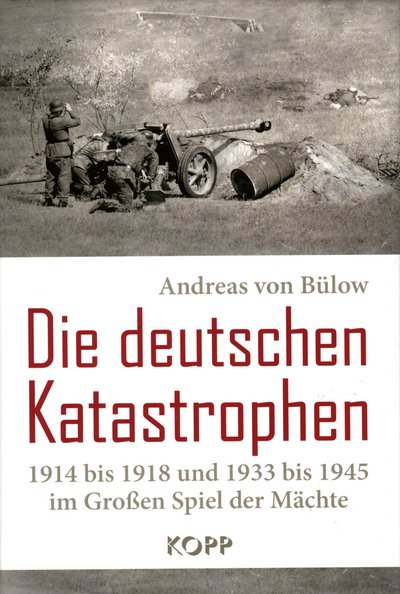On the “Great Game of Powers”
ds. In 2015, Andreas von Bülow – born in 1937 and a member of the German Bundestag from 1969 to 1994, including on the Parliamentary Control Commission of the Secret Services, Parliamentary State Secretary to the Federal Minister of Defence and Federal Minister of Research and Technology under Helmut Schmidt – published his book “Die deutschen Katastrophen. 1914 bis 1918 and 1933 bis 1945 im Grossen Spiel der Mächte” (The German Catastrophes. 1914 to 1918 and 1933 to 1945 in the Great Game of Powers). In it, he shows that the two world wars can be understood “only in the course of the worldwide struggle for the redistribution of power”.
“International tensions” von Bülow writes, “only lead to war when the long-term calculations of the great powers acting in the background deem the time to be right. As a rule, the attitude of the number one among the great powers plays the decisive role. In 1914 this was undoubtedly still Great Britain, replaced in this role by the United States of North America from 1918 at the latest”. (p. 27)
Britain and the USA pursued their own goals in the First and Second World Wars: Great Britain followed a 400-year-old tradition of always taking action against the strongest power on the European continent and thereby enlisting the second- and third-ranking powers in the struggle. The United States, through huge war profits in the course of both wars, became the determining great power economically, financially and militarily, replacing Great Britain as number one.
The “Great Game of Powers” follows its own rules, writes von Bülow. The top priority is to prevent a competitive structure from developing under all circumstances. In 1941, the American President Truman had summed up the cynical philosophy of the “Great Game” when he formulated: “If Germany wins, we should help Russia, but if Russia wins, we should help Germany, let them exterminate each other as much as possible.” (p. 384)
And so that as many as possible could exterminate each other, major English and American banks financed both sides. – The Soviet Union bore the brunt of the war against Hitler and suffered 27 million deaths.
Human lives do not count in the “Great Game of Powers”. •
